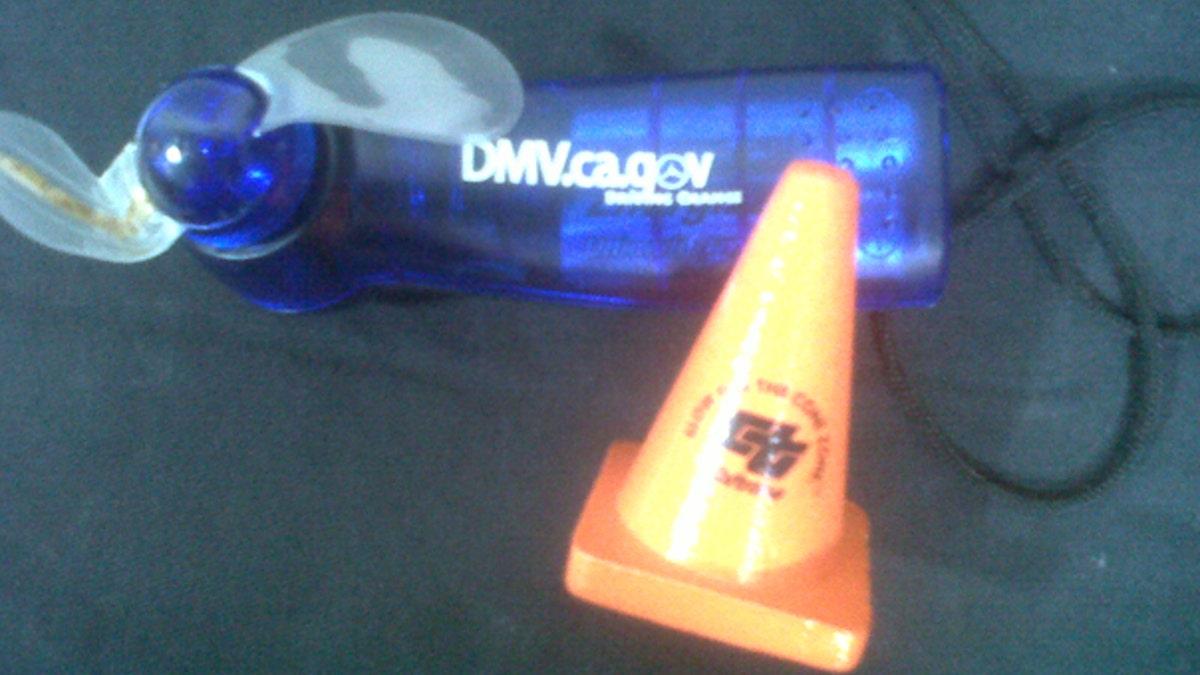
No more stuff to be produced for promotional activities by California agencies, Gov. Jerry Brown says. (FNC)
Famous for his frugality, California Gov. Jerry Brown has begun his third term with some bureaucratic spring cleaning and that includes -- among other things -- disconnecting thousands of taxpayer-funded cell phones.
"I'm opening every closet and door and pulling out the drawers and finding out what's there that shouldn't be there," Brown announced recently.
The move to ban taxpayer-paid cell phones is expected to save more than $20 million a year.
But Brown has also banned "stuff we all get," better known as SWAG -- those key chains, cups and other promotional knickknacks given away by almost every state agency. According to the governor's office, between 2007 and 2010, agency freebies cost taxpayers $7.5 million.
Several items of SWAG were on display during a recent event in Sacramento. While the tote bags and mugs might be useful to some, the purpose of the inch-tall, bright red safety cones, given away by Cal-Trans, may serve less purpose.
Also in question was the wisdom of the "go paperless" message from the State Franchise Tax Board, printed, as it was, on a sturdy piece of paper. The small Chives Grow Kit really missed the mark, especially since it didn't say which agency handed it out.
Some Republicans say Brown is missing the mark, because, they contend, these kinds of symbolic cuts won't do anything to improve the state's financial health or close its $26.6 billion deficit.
Republican Assemblyman Jim Neilson, vice chairman of the Assembly Budget Committee, says Brown needs to tackle bigger issues facing the state, like school and pension reform, and take on the special interests to downsize government and make California more business friendly.
"Highlight the onerous regulations, governor," says Neilson. "Come out and announce you are going to review all the regulations that have a negative impact on jobs and the economy."
Analysts say Brown is using a chisel rather than an axe to pave the way for tough calls down the road.
Brown is sending a message that in these tough times, everyone needs to share the pain, said Fox News contributor Susan Estrich, "and if we're taking cuts on some of these symbolic items, next week, when we have to sit down with you, or next month, you're going to have to take some cuts too."
Brown had set a Thursday deadline for state lawmakers to agree to call a June special election so voters can decide whether to extend three expiring tax increases for another five years. Voter approval means increases on income, sales and car taxes would bring more than $9 billion a year into the state's treasury.
Votes in the Legislature to hold that election weren't there, and without those tax extensions, Brown had warned that California faces an "all-cuts" solution -- somewhere around $25 billion in cuts.
In a late announcement Wednesday evening, Brown's office said that following "positive and productive" budget talks between the governor and lawmakers on both sides of the aisle, a vote on the budget was to be delayed "in order to allow more time to find common ground and to put the state's finances back in balance."




